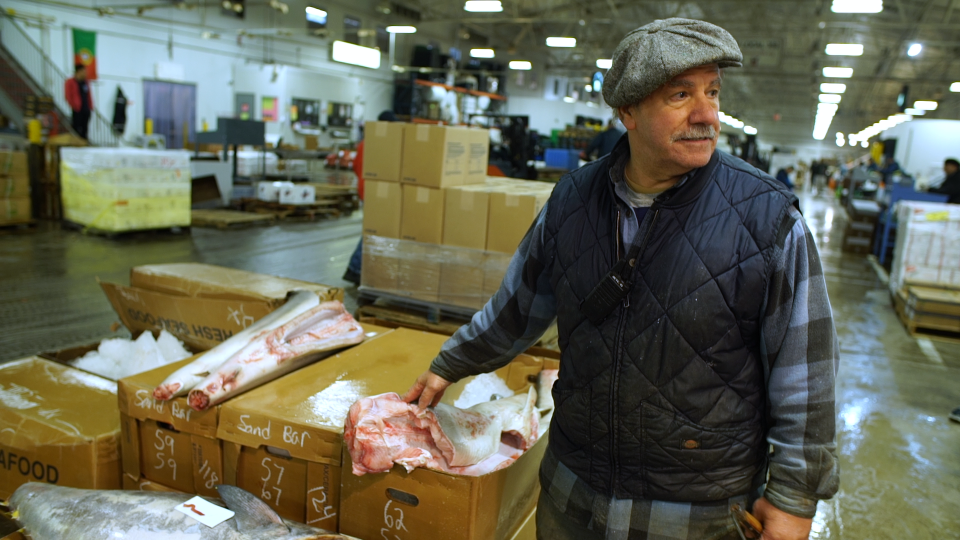How the ‘Amazon of Fish’ is digitizing America's largest fish market
The narrative of businesses bringing operations into the 21st century can be rife with hyperbole, but for New York City’s Fulton Fish Market, which was founded in 1822, it’s anything but.
As the nation’s largest and second-oldest continuously operating fish market, Fulton Fish Market has quietly been brought into the digital age by a privately held startup that’s been pouring millions into securing an exclusive deal to sell fish from the historic market online through partnerships with Walmart’s Jet.com, Boxed and food delivery platform Goldbelly, among others.
Through the backing of several prominent families, including the billionaire Tisch family, FultonFishMarket.com, is giving even rural Americans access to fresh-caught fish from the nearly 200-year-old market and ensuring delivery from dock-to-door in mere hours.
“We're an information company, we're not really a fish company,” CEO Mike Spindler tells Yahoo Finance on the floor of the 400,000-square-foot market. “We just happen to sell fish, so we had to build systems and data and all of the other stuff that goes into trying to understand how to move fresh product for the first time, from here to Kansas City and get it there the same day in the same condition that it came out of the water.”

That process technically begins even before a customer places an order. It all starts at 10 p.m. ET the night before, when a consortium of family-owned businesses that have stood for generations unload an estimated 500 varieties of fish and seafood across 20 loading docks in the Bronx . On any given day, nearly 2 million pounds of fresh seafood can be bought by international buyers, restaurant chains, and now individuals from across the country.
As orders come in, FultonFishMarket.com purveyors get first choice to snag everything from fresh swordfish, to tuna, to more exotic varieties of fluke and sea bass. Due to a negotiated exclusive agreement with the city of New York, the startup will be the only company allowed to sell any of Fulton Fish Market’s products online for the next 25 years.
“They pick out the product from wherever it looks best, we secure the product, take it down to our shop and transform it from what's effectively a 3,000-year-old business to an Amazon warehouse,” Spindler said.
Due to the U.S. market being home to some of the world’s most stringent fishing regulations, information on domestic catches allows Fulton Fish Market to track an incredible amount of detail.
“We could know the boat, if we choose to go that far and we do sometimes,” Spindler said. “We know how it was fished, when it was fished. We know the quota it was fished on.”
As CFO Andrew Crown explains, that amounts to a powerful selling point for consumers looking to be absolutely sure they are getting a sustainably sourced product. A study from fishery environmentalist group Oceana found nearly 20% of the seafood it tested across the country to be mislabeled.

“The average piece of seafood in this country touches hands five to 15 times from dock to door,” he says. “A lot of the times, grocery stores are buying product from national or local distributors that are buying it from other national or local distributors … so, we're able to compete on price, despite how quickly we're getting it there because of how many steps we're taking out of this very archaic supply chain.”
Not exactly cheap, but it is ‘fresh seafood’
How well the company is able to compete on price is a bit of a relative question. Prices for a consumer portioned, shrink-wrapped dual serving of salmon can range anywhere from $10 per pound to $40 per pound, depending on the catch. For example, the cheapest variety, a pound of fresh wild caught Sockeye salmon costs $20 before a $15 flat shipping fee compared to Amazon’s Whole Foods’ pricing of $17.99. Fulton Fish Market, however, notes that its product is delivered fresh and never frozen.
That’s an important distinction for partners like online wholesale partner Boxed, which previously wasn’t able to offer fresh fish to customers.

“Fresh seafood is a smaller category than most of our other categories, but we see that it drives higher baskets for our loyal Boxed customers … and satisfies a white space that we are not able to provide within our current network,” a spokesperson told Yahoo Finance. “While pricing is prohibitive for some folks today, the more we are able to partner with their team to drive improvements in this space, the more we can bring the costs down to broaden the appeal to more customers.”
Similar thinking from other online retail partners has made Fulton’s digital partnerships its fastest-growing segment, though restaurant purchases still comprise about 80% of total sales. Spindler says the company’s revenue, which is expected to top $10 million this year, continues to double every year.
“It's a fast-growing business because people need fresh seafood,” he said, referring to his newfound customers via partnerships with sites like Boxed.
Zack Guzman is the host of YFi PM as well as a senior writer and on-air reporter covering entrepreneurship, startups, and breaking news at Yahoo Finance. Follow him on Twitter @zGuz.
Read the latest financial and business news from Yahoo Finance
Read more:
Illinois becomes the latest state to legalize marijuana, these states may follow
The Farm Bill could end the multimillion dollar industry of cockfighting
Why a bigger Powerball jackpot is actually the worst time to buy a ticket
Follow Yahoo Finance on Twitter, Facebook, Instagram, Flipboard, LinkedIn, and reddit.
